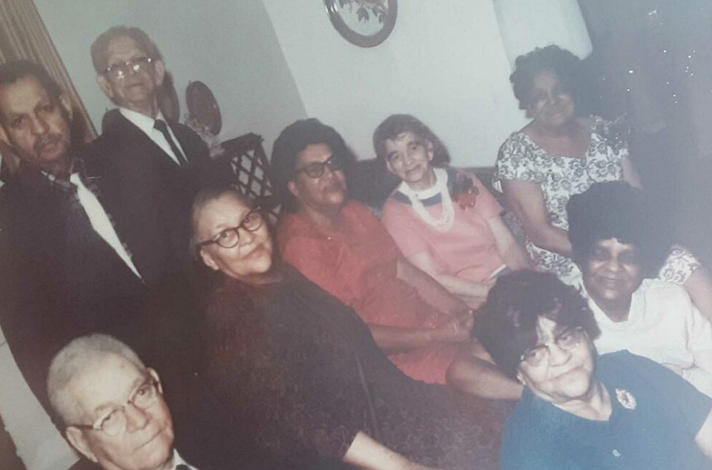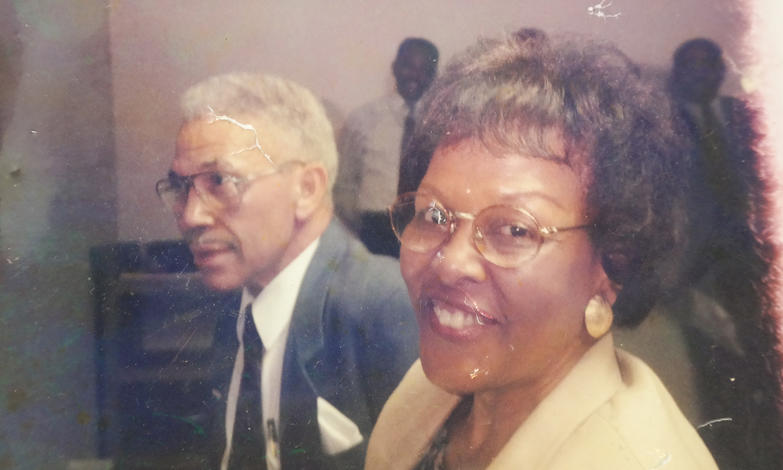
This article was originally published on February 25, 2019.
We already knew Ural Hill as a man of many interests and talents. Setting aside a fascinating backstory, his life today blends work as a minister, counselor and lecturer at UM-Dearborn, where he's known as one of the College of Education, Health, and Human Services’ go-to resources on addiction. But when we called him earlier this month to discuss doing a faculty profile, he surprised us with what he said was holding the firmest grip on his curiosity. He's currently working on a memoir that weaves together the lives of his African and American ancestors with themes central to the country’s history — including issues that have continuously challenged its core ideals. We chatted with Hill about what this deep dive into his roots has yielded so far, and what he thinks it says about our shared American story.
Can you start by telling us how this journey into your past began?
Well, I was drawn into the story at a very young age. In 1965, at 6 years old, my grandmother decided to take us down to South Carolina to meet her family. It was a memorable trip for a number of reasons. But I have a vivid memory of going to meet her brothers and sisters and other relatives and her turning to me and saying: “These are your people; they are who you come from.” It was a profound moment, even as a very young person: I remember it being the beginning of my understanding that there is a place you come from that stretches beyond the place you live.
As I got older, I started to learn more details, primarily through a history that had been preserved through an oral tradition. At family reunions, for example, we would listen to stories from my [great] Aunt Corrie, who was the first elder family historian on my mother’s side. And it’s there that many of us learned the origins of our family in South Carolina. Corrie’s grandmother was Rachel Stewart, who we can trace all the way back to Sierra Leone and her journey on a slave ship probably sometime in the 1830s or 1840s. And the four children that Rachel had — one of whom is my direct ancestor — were from the slave owner. So I learned pretty early on that I came from a family that had mixed ancestry.
That can, of course, be an intense discovery, because relationships between enslaved women and slave owners were almost always non-consensual. It’s also very thought provoking, though, because that history confounds our either/or ideas about race, right?
Absolutely. As we follow that side of my family’s story forward, you can see how that played out numerous times. For example, my Aunt Millie, who was among those South Carolina relatives I met as a kid, was listed as white on her birth certificate and passed for white as a young woman. In fact, when her niece used to visit Millie in South Carolina, she would make sure that in public she called her Miss Millie, not Aunt Millie, so she wouldn’t be discovered.
And my Aunt Corrie used to tell a story about working at the library, and my Uncle Heyward — who looked white — came in and took her to lunch. When she got back, one of her colleagues asked her who the white man was who had picked her up. And she told her he was her brother Heyward. Then, the woman asked Corrie what she thought about integration. And Aunt Corrie said, “We don’t think anything about integration. We have been integrated in my family for a long time: Some of us are white and some of us are black.” To me, that’s an incredible way of looking at race that was far ahead of its time.

So this is all on your mom’s side of the family tree. What do you know about your dad’s side?
In some ways, it’s a similar history. My father had lighter skin and green eyes; when he was younger, he looked like Clark Gable. Through his family’s own oral tradition, he knew the ancestry was complex and included African, white and Native American roots. And he was aware, as on my mom’s side, of an ancestor who was a child of an enslaved woman and the slave owner. But in the past 10 years or so, a cousin of mine has helped the family fill in more details about that history, which she chronicled in a book. What she learned is pretty remarkable: Sometime in the early 1800s, an Amish man from Pennsylvania named John Mast decided to leave the church and move to North Carolina. He was a businessman and he saw owning slaves as an opportunity to make his fortune. It didn’t work out that way for him, but his son, Joseph, owned slaves. And later, Joseph’s son, Reuben, had a child with one of them — a woman from Ghana. Their son, Charley Mast, is my direct ancestor.

A family tree that includes Amish and African ancestry — that’s pretty unbelievable. What does having a history like that mean to you? And what are you taking away from this dive into your family’s past more generally?
Well, I think there are personal takeaways and then takeaways for all of us as Americans, which is one of the reasons I’m interested in writing this book. One of the things that intrigues me personally is that there is a continuity between some of my deepest values and those of some of my ancestors. On my mother’s side, I’ve learned we are a family of preachers and teachers. My Aunt Corrie was one of the first black women to earn a teacher’s certificate in the state of South Carolina. My mother worked for Detroit Public Schools. And here I am now carrying on the teaching tradition. Similarly, I felt a deep sense of spirituality from a very early age. And as I look back through our history, you see right away that this is a godly family — a Christian family. So you start to think about how the generations that came before — even people you never met — are still influencing your path.
In a larger sense, I’m reading my family’s story as a microcosm of the macrocosm of black history. For example, in the social sciences, we talk a lot about race as a social construct. But that idea suddenly becomes much less conceptual when you see how in my family, siblings could be either — or both — “white” or “black,” simply because of a genetic role of the dice that made some of them lighter and some of them darker. Clearly for Aunt Corrie and Uncle Heyward, that understanding shaped how they thought about race. And I wonder if that legacy — of understanding how much more mixed we are as Americans, and how much we have in common that we don’t acknowledge — can help us move past some of the things that have historically pulled us apart.





